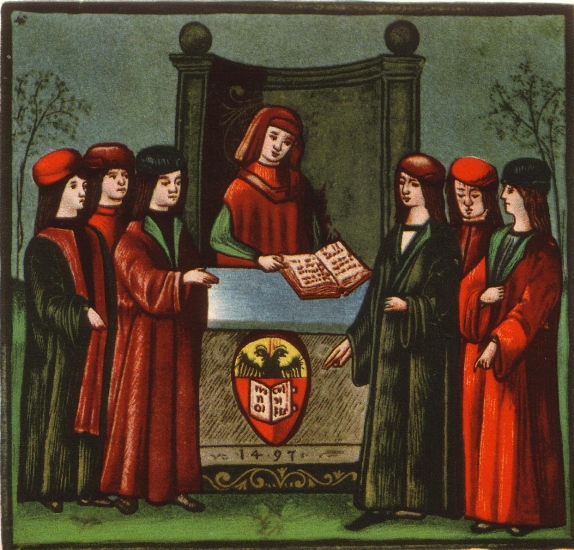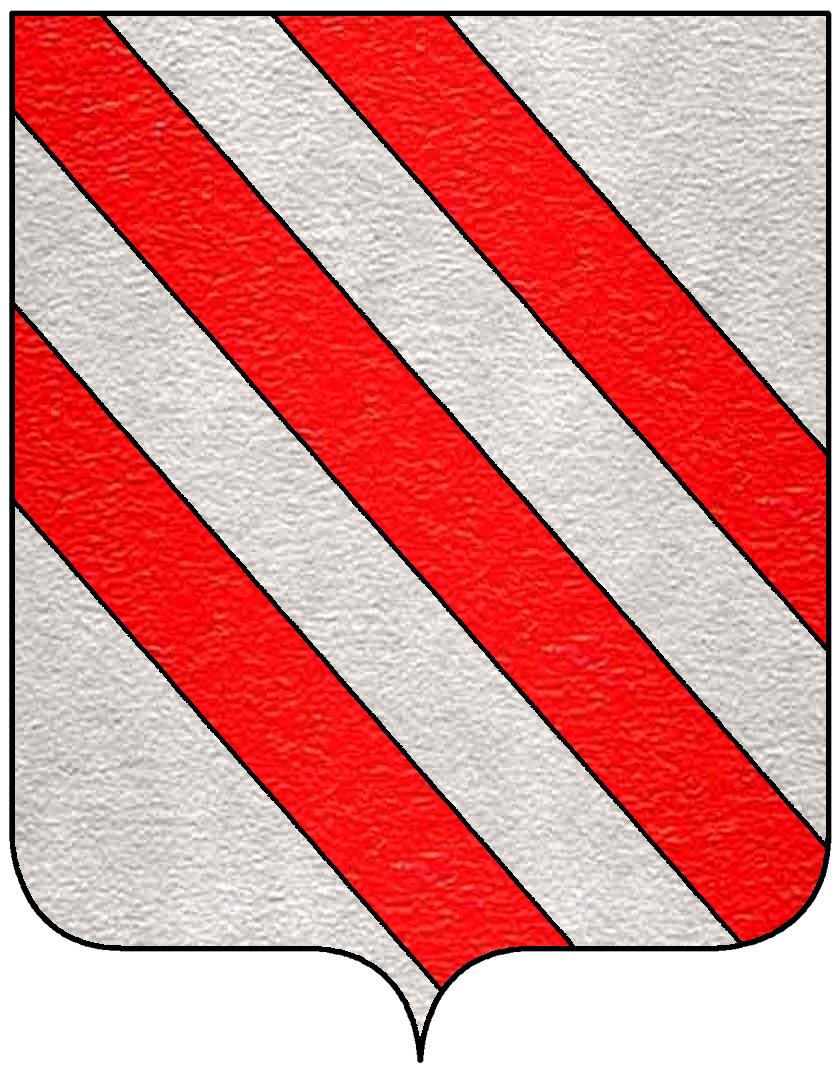|
Odoardo Gualandi
Odoardo Gualandi descended from an old and famous patrician family from Pisa. At the university of Bologna he graduated summa cum laude in civil and canon law. Career Gualandi was the private secretary of Cardinal Alfonso Carafa, Archbishop of Naples. In 1557, Pope Paul IV named him a Canon of the collegiate churches of Saints Stephen and Saint Felix in Aquileia. From 1557 till 1588 he was Bishop of Cesena in northern Italy. In that capacity Gualandi organized several synods. The synod in 1582 resulted in his first publication, ''Constitutiones, et decreta condita ab illustri...Adoardo Gualando...Caesenae''. 1584. In 1588 Gualandi retired and was succeeded as Bishop of Cesena by his nephew Camillo Gualandi. During his retirement he wrote his only known philosophical treatise, ''De civili facultate Libri XVI''. It was published by his nephew in 1598, i.e. a year after his death in Rome, 17 March 1597. The treatise shows Gualandi as an eclectic Aristotelian who attracted attentio ... [...More Info...] [...Related Items...] OR: [Wikipedia] [Google] [Baidu] |
University Of Bologna
The University of Bologna ( it, Alma Mater Studiorum – Università di Bologna, UNIBO) is a public research university in Bologna, Italy. Founded in 1088 by an organised guild of students (''studiorum''), it is the oldest university in continuous operation in the world, and the first degree-awarding institution of higher learning. At its foundation, the word ''universitas'' was first coined.Hunt Janin: "The university in medieval life, 1179–1499", McFarland, 2008, , p. 55f.de Ridder-Symoens, Hilde''A History of the University in Europe: Volume 1, Universities in the Middle Ages'' Cambridge University Press, 1992, , pp. 47–55 With over 90,000 students, it is the second largest university in Italy after La Sapienza in Rome. It was the first place of study to use the term ''universitas'' for the corporations of students and masters, which came to define the institution (especially its law school) located in Bologna. The university's emblem carries the motto, ''Alma Mater Studio ... [...More Info...] [...Related Items...] OR: [Wikipedia] [Google] [Baidu] |
Pope Paul IV
Pope Paul IV, born Gian Pietro Carafa, C.R. ( la, Paulus IV; it, Paolo IV; 28 June 1476 – 18 August 1559) was head of the Catholic Church and ruler of the Papal States from 23 May 1555 to his death in August 1559. While serving as papal nuncio in Spain, he developed an anti-Spanish outlook that later coloured his papacy. In response to an invasion of part of the Papal States by Spain during his papacy, he called for a French military intervention. After a defeat of the French and with Spanish troops at the edge of Rome, the Papacy and Spain reached a compromise: French and Spanish forces left the Papal States and the Pope thereafter adopted a neutral stance between France and Spain. Carafa was appointed bishop of Chieti, but resigned in 1524 in order to found with St. Cajetan the Congregation of Clerics Regular (Theatines). Recalled to Rome, and made Archbishop of Naples, he worked to re-organize the Inquisitorial system in response to the emerging Protestant movement ... [...More Info...] [...Related Items...] OR: [Wikipedia] [Google] [Baidu] |
Bishop Of Cesena
The Italian Catholic Diocese of Cesena-Sarsina in Emilia Romagna was created on September 30, 1986, after the Diocese of Sarsina was united with the historic Diocese of Cesena as a suffragan of the Archdiocese of Ravenna-Cervia."Diocese of Cesena-Sarsina" ''''. David M. Cheney. Retrieved February 29, 2016. "Diocese of Cesena-Sarsina" ''GCatholic.org''. Gabriel Chow. Retrieved February 29, 2016. The current bishop of Cesena-Sarsina is Douglas Regattieri. He was appointed on October 8, 2010, after Bisho ... [...More Info...] [...Related Items...] OR: [Wikipedia] [Google] [Baidu] |
Camillo Gualandi
Camillo Gualandi (died 11 February 1609) was a Roman Catholic prelate who served as Bishop of Cesena (1588–1609)."Bishop Camillo Gualandi" '' Catholic-Hierarchy.org''. David M. Cheney. Retrieved March 21, 2016 Biography On 30 March 1588, Camillo Gualandi was appointed during the papacy of as . On 25 April 1588, he was consecrated bishop by[...More Info...] [...Related Items...] OR: [Wikipedia] [Google] [Baidu] |
Renaissance Philosophy
The designation "Renaissance philosophy" is used by scholars of intellectual history to refer to the thought of the period running in Europe roughly between 1400 and 1600 (the dates shift forward for central and northern Europe and for areas such as Spanish America, India, Japan, and China under European influence). It therefore overlaps both with late medieval philosophy, which in the fourteenth and fifteenth centuries was influenced by notable figures such as Albert the Great, Thomas Aquinas, William of Ockham, and Marsilius of Padua, and early modern philosophy, which conventionally starts with René Descartes and his publication of the ''Discourse on Method'' in 1637. Philosophers usually divide the period less finely, jumping from medieval to early modern philosophy, on the assumption that no radical shifts in perspective took place in the centuries immediately before Descartes. Intellectual historians, however, take into considerations factors such as sources, approaches, au ... [...More Info...] [...Related Items...] OR: [Wikipedia] [Google] [Baidu] |
Aristotelian Ethics
Aristotle first used the term ''ethics'' to name a field of study developed by his predecessors Socrates and Plato. In philosophy, ethics is the attempt to offer a rational response to the question of how humans should best live. Aristotle regarded ethics and politics as two related but separate fields of study, since ethics examines the good of the individual, while politics examines the good of the City-State, which he considered to be the best type of community. Aristotle's writings have been read more or less continuously since ancient times, and his ethical treatises in particular continue to influence philosophers working today. Aristotle emphasized the practical importance of developing excellence (virtue) of character (Greek ''ēthikē aretē''), as the way to achieve what is finally more important, excellent conduct (Greek ''praxis''). As Aristotle argues in Book II of the '' Nicomachean Ethics'', the man who possesses character excellence will tend to do the right thing, ... [...More Info...] [...Related Items...] OR: [Wikipedia] [Google] [Baidu] |
Gualandi
The Gualandi family is an old Italian noble family, originally from Pisa. History In the Middle Ages this family supported the Ghibellines and it was one of the family that the archbishop Ruggieri degli Ubaldini incited against Ugolino della Gherardesca. The Gualandi family is cited by Dante Alighieri in the Inferno Inferno may refer to: * Hell, an afterlife place of suffering * Conflagration, a large uncontrolled fire Film * ''L'Inferno'', a 1911 Italian film * Inferno (1953 film), ''Inferno'' (1953 film), a film noir by Roy Ward Baker * Inferno (1973 fi ... (XXXIII, 32). Italian noble families {{Italy-hist-stub ... [...More Info...] [...Related Items...] OR: [Wikipedia] [Google] [Baidu] |




